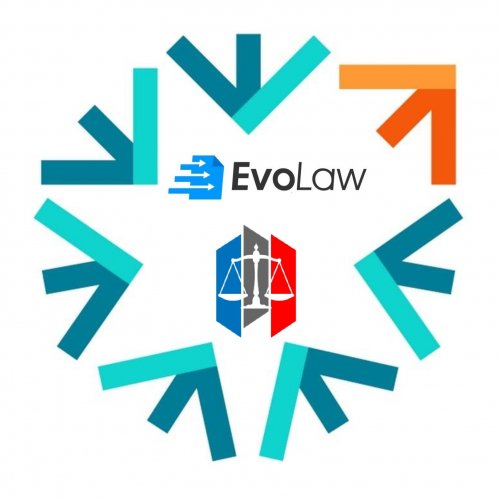Best Employment Benefits & Executive Compensation Lawyers in El Salvador
Share your needs with us, get contacted by law firms.
Free. Takes 2 min.
Or refine your search by selecting a city:
List of the best lawyers in El Salvador
About Employment Benefits & Executive Compensation Law in El Salvador
Employment Benefits & Executive Compensation Law in El Salvador is a specialized field that encompasses various legal frameworks governing employee benefits, compensation packages, and executive remuneration. These laws ensure that employees receive fair treatment and compensation packages, which can include salary, bonuses, health benefits, pensions, stock options, and other perks. The legal landscape in El Salvador aims to balance the rights and responsibilities of employers and employees, foster positive workplace environments, and sustain the social security system.
Why You May Need a Lawyer
Many situations might necessitate the guidance of a lawyer in this area of law. Common reasons include disputes over unpaid benefits or bonuses, unclear terms in executive contracts, changes in compensation packages, violations of labor laws, and issues concerning retirement benefits. Additionally, companies may need legal counsel when designing benefit plans that comply with local laws or when they seek to revise employment policies to align with current legal standards.
Local Laws Overview
El Salvador's legal framework concerning employment benefits and executive compensation involves several critical statutes and regulations. The Labor Code is the principal legislation that defines the rights and obligations concerning employment conditions, including wages, working hours, and overtime. Additionally, the country's pension system is regulated by the AFP law, which oversees the management of private pension plans. Executive compensation might also be influenced by corporate governance norms, which often require transparency and accountability in how compensation packages are structured and executed.
Frequently Asked Questions
What are the basic employment benefits guaranteed by law in El Salvador?
Employees are entitled to a range of benefits including paid vacations, maternity leave, severance pay, and healthcare through the national social security system. Employers are required to adhere to these minimum standards as part of the employment agreement.
How are executive compensation packages typically structured in El Salvador?
Executive compensation packages often include a combination of base salary, performance-based bonuses, stock options, and additional benefits such as health insurance and car allowances. These packages are designed to attract and retain top talent while aligning their interests with the company's long-term goals.
Are employers required to provide pension benefits?
Participation in the pension system is mandatory in El Salvador. Employers and employees contribute to the pension funds managed by private administrators. The contributions are calculated as a percentage of the employee's salary.
What should I do if I believe my employer is violating my benefit entitlements?
If you suspect that your employer is violating benefit entitlements, consider discussing the issue with your HR department first. If the issue is unresolved, legal assistance may be necessary to review your employment contracts and evaluate avenues for legal redress.
Can compensation packages include non-monetary benefits?
Yes, compensation packages can include non-monetary benefits such as company-provided housing, vehicles, and health or life insurance policies, which are often tax-efficient and valued by employees for the added security they provide.
What legal protections exist for employees who are offered stock options?
Employees offered stock options have certain protections, such as the right to be informed of the risks involved and the ability to exercise those options within agreed terms. It's imperative to understand these agreements fully with legal assistance if necessary.
Are there specific laws governing severance payments?
Severance payments are governed by the Labor Code, which sets out the required amounts dependent on the employee's length of service and circumstances surrounding termination.
How can an employer lawfully reduce benefits during tough economic times?
Employers facing economic challenges must navigate reductions in benefits cautiously and in compliance with labor laws, typically requiring negotiation with employee representatives or worker consent.
Are executive compensations subject to taxation in El Salvador?
Yes, all forms of executive compensation, including salaries, bonuses, and stock options, are subject to taxation under Salvadoran tax law, and it's crucial for companies to ensure that they withhold and remit taxes appropriately.
What is the role of an HR department in managing executive compensation?
The HR department plays a critical role in designing, managing, and communicating compensation packages, ensuring compliance with legal regulations, and aligning compensation strategies with organizational goals.
Additional Resources
Here are useful resources and organizations for those seeking information or assistance with employment benefits and executive compensation in El Salvador:
- Ministry of Labor and Social Welfare (Ministerio de Trabajo y Previsión Social)
- Social Security Institute of El Salvador (Instituto Salvadoreño del Seguro Social)
- Legal consultants specializing in labor law and corporate governance
- Local human resources professional organizations
Next Steps
If you require legal assistance in Employment Benefits & Executive Compensation, consider scheduling a consultation with a lawyer specializing in El Salvador's labor and compensation law. Identify your specific issues, gather pertinent documents such as employment contracts and benefit statements, and prepare a list of questions to maximize the benefit of your meeting. Staying informed and seeking expert advice are the best steps towards resolving your concerns effectively.
Lawzana helps you find the best lawyers and law firms in El Salvador through a curated and pre-screened list of qualified legal professionals. Our platform offers rankings and detailed profiles of attorneys and law firms, allowing you to compare based on practice areas, including Employment Benefits & Executive Compensation, experience, and client feedback.
Each profile includes a description of the firm's areas of practice, client reviews, team members and partners, year of establishment, spoken languages, office locations, contact information, social media presence, and any published articles or resources. Most firms on our platform speak English and are experienced in both local and international legal matters.
Get a quote from top-rated law firms in El Salvador — quickly, securely, and without unnecessary hassle.
Disclaimer:
The information provided on this page is for general informational purposes only and does not constitute legal advice. While we strive to ensure the accuracy and relevance of the content, legal information may change over time, and interpretations of the law can vary. You should always consult with a qualified legal professional for advice specific to your situation.
We disclaim all liability for actions taken or not taken based on the content of this page. If you believe any information is incorrect or outdated, please contact us, and we will review and update it where appropriate.
Browse employment benefits & executive compensation law firms by city in El Salvador
Refine your search by selecting a city.










